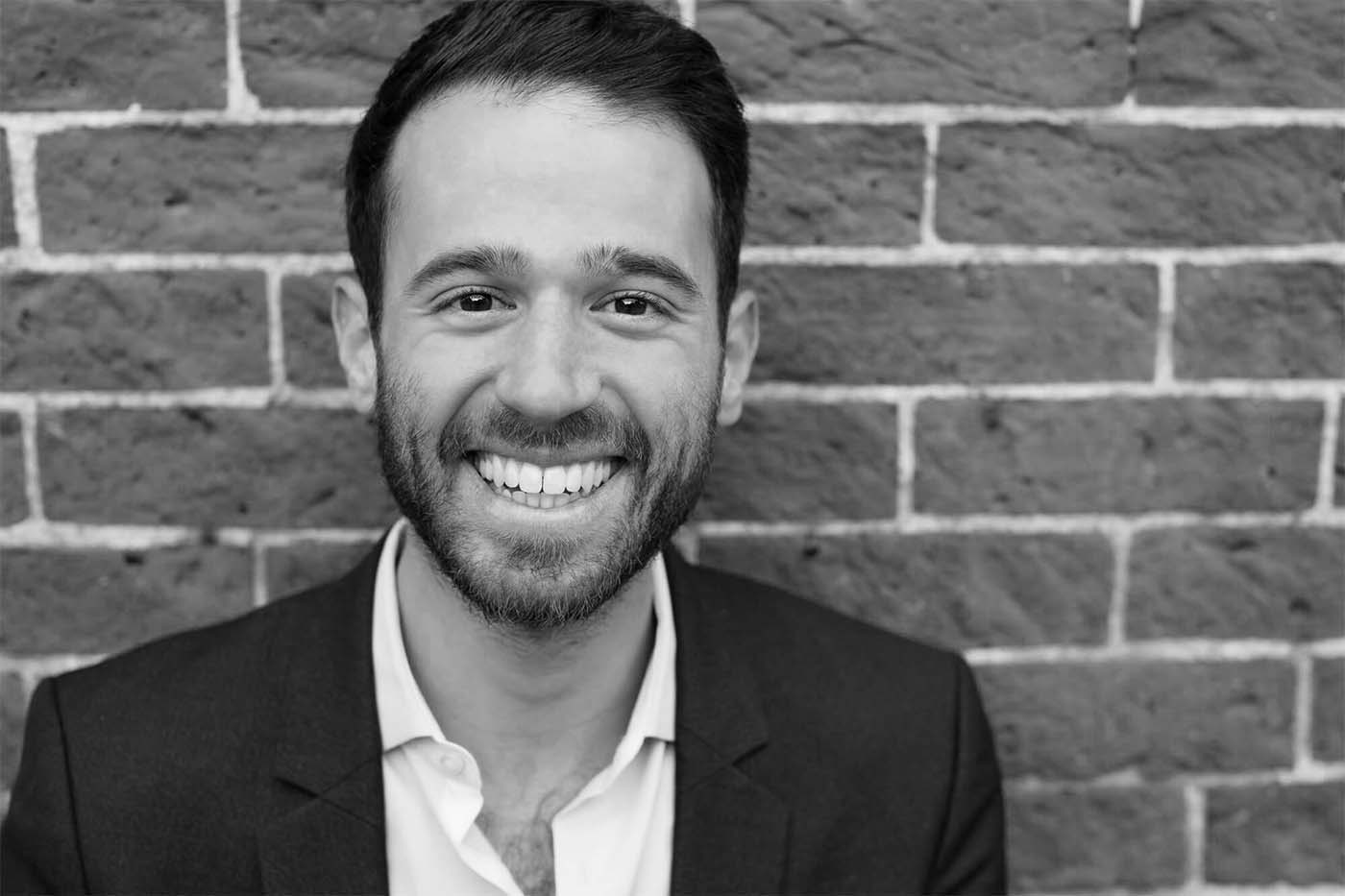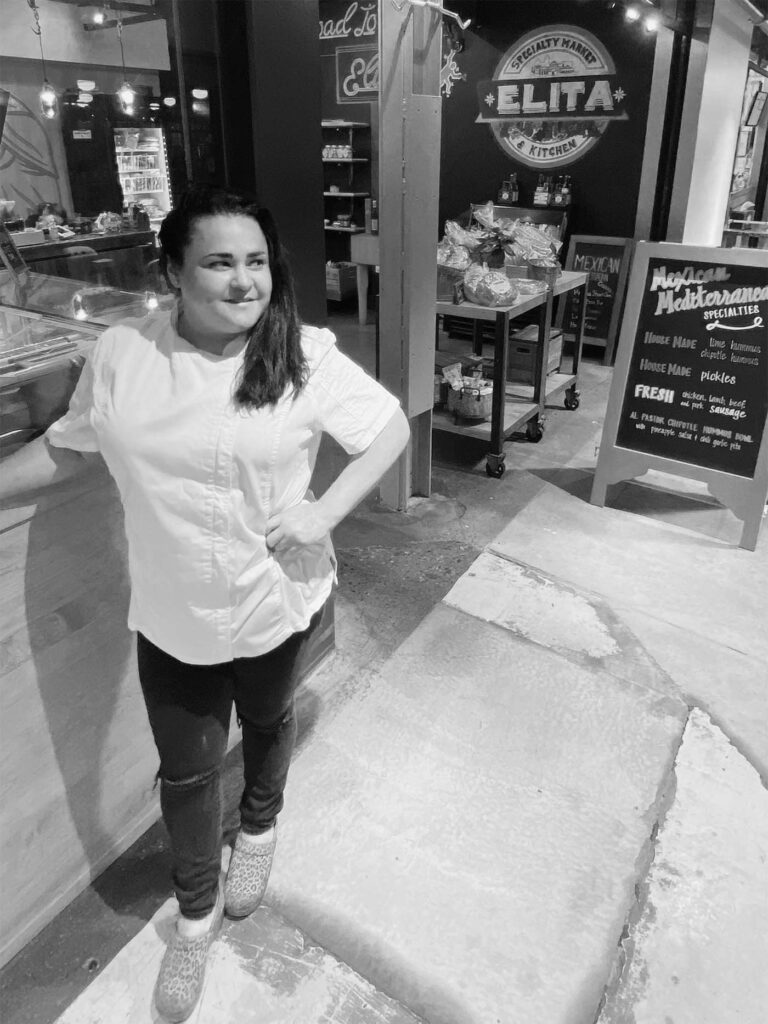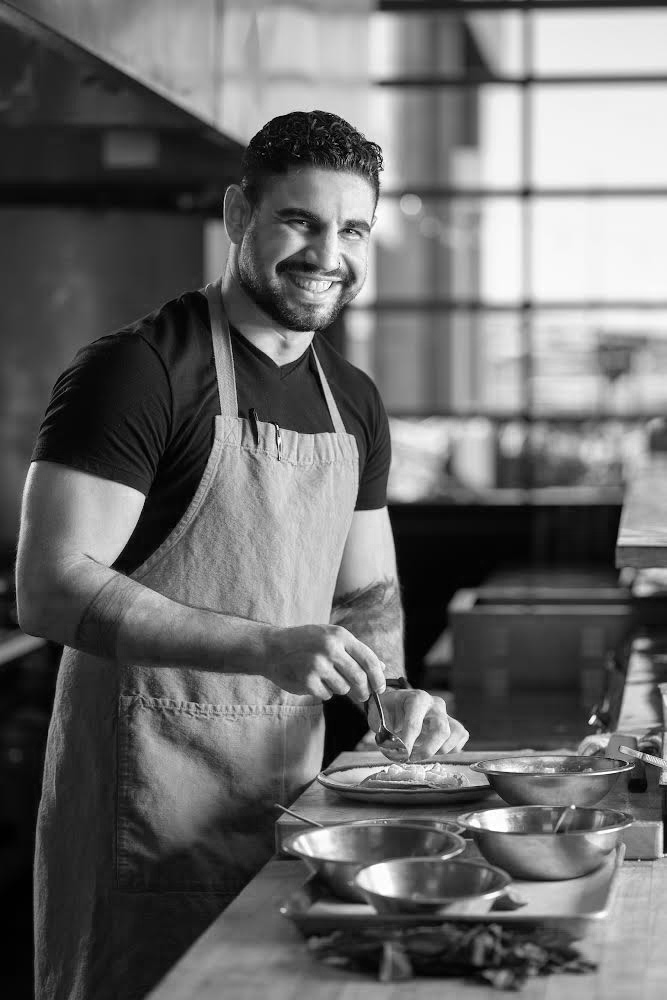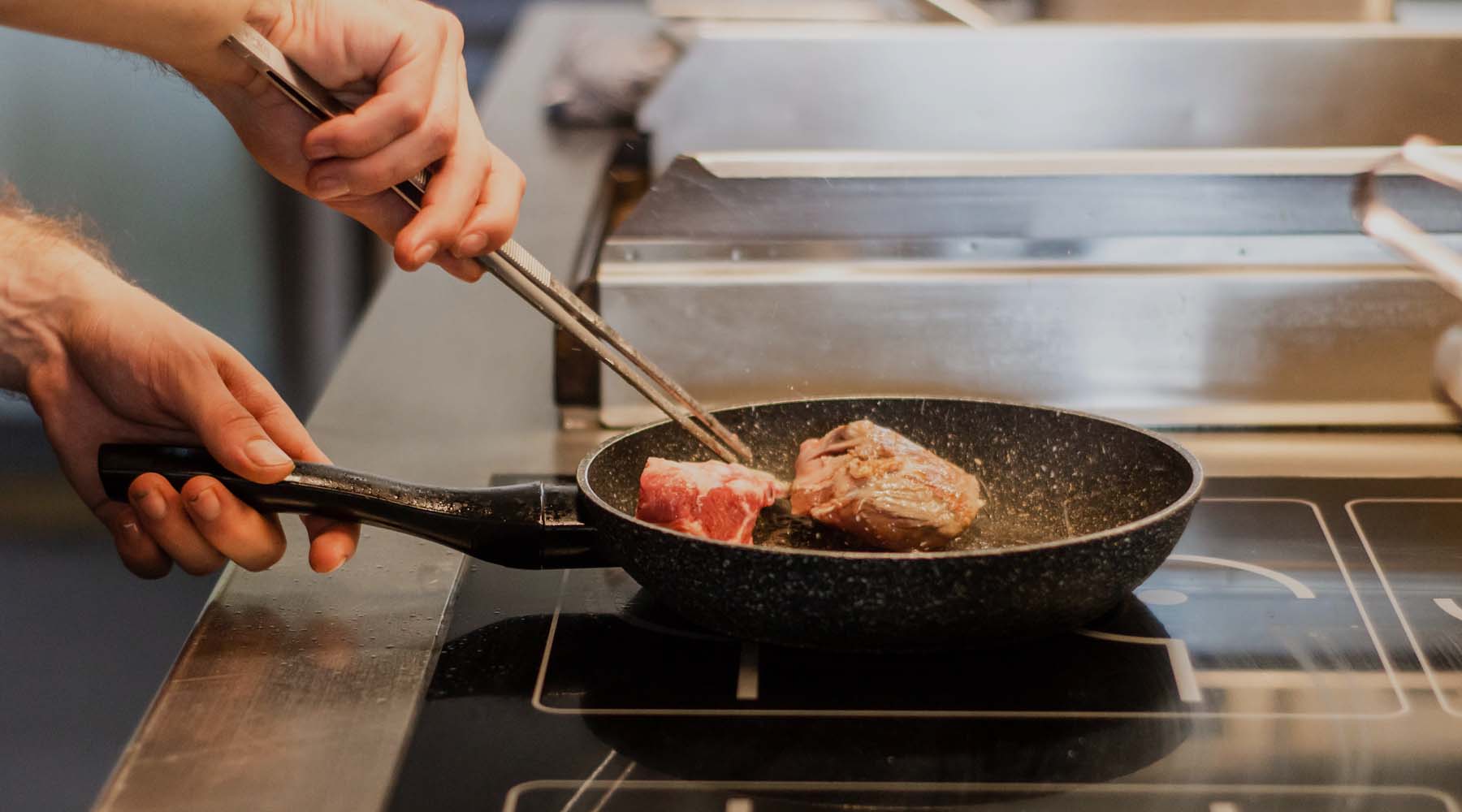
There are three words on everyone’s lips these days: labor, labor, labor. We don’t need to tell you there’s a dearth of employees entering the market—and those who do apply are less skilled than in the past. But like all things, strife in staffing bears opportunity. Here’s how operators are finding—and harnessing—the silver lining.
Job Security

Like everyone in the restaurant industry, Whole Sol experienced workforce whiplash during the pandemic. As luck would have it, we’d opened three new locations just before the pandemic began, only to have business come to a screeching halt in March 2020. And while we were grateful to be in a position to retain all of our salaried managers, we unfortunately had to let our part-time workers go.
As we settled into that “new normal,” it became clear our staffing needs would vary greatly by location. For example, LoDo did very well (and even grew) during the pandemic, while our Pearl Street location in Boulder was a ghost town absent the usual tourist traffic.
Once the dust settled and we had a clearer picture of where our volume was, we started rehiring. However, given the severe staffing shortages, competition was extremely tough. We had to give serious thought to how we could attract the best team members and, even more importantly, retain them.
First, we increased wages across the board by 10 percent; we’re now paying between $16 to $22 an hour, depending on the role. Then, we began offering health insurance for full-time employees, with Whole Sol contributing 25 percent of the plan costs. And in April 2021, we started offering a $1,000 retention bonus to full-time employees who reach six months of employment.
We also asked our current staff which benefits were most important to them and heard that the $50 per month health and wellness stipend was big. Our team appreciated receiving reimbursement for things like gym memberships, massage or chiropractic sessions, sneakers, fitness equipment, and more. They also enjoyed the 50 percent employee discount that’s available at all of our locations. While many restaurants limit employee discounts to just the shift or location they’re working, we want to make healthy food and eating well on the go as accessible as possible to our team members.
Our team appreciated receiving reimbursement for things like gym memberships, massage or chiropractic sessions, sneakers, fitness equipment, and more.
After we put all of these benefits out there, we were overwhelmed by interest. I conducted five to 10 phone interviews a day and we hired 64 people in just six weeks. What this experience brought into focus for me is just how right Danny Meyer was when he said, “Put your employees first; customers will follow.” I’ve seen firsthand that when Whole Sol invests in taking care of our employees, it directly translates to a better customer experience.
I’m often asked how I can afford this approach. My answer is that restaurateurs already pay the most significant hidden surcharge across all industries—employee turnover. Even before the pandemic, restaurant industry turnover rates were among the highest, hovering around 80 percent; the latest estimates place them somewhere between 100 to 150 percent.
At Whole Sol, we invest between $800 to $1,200 per employee in training costs. If employees leave within a few weeks or months, that’s a massive cost that adds up quickly. When it comes to hiring, I ultimately believe owners will be far better off putting money into their employees’ pockets by offering them benefits that show they care and motivate them to stay.
—Phil Dumontet, CEO and co-founder, Whole Sol, Denver and Boulder
People First

The way I view my business and the way I hire, I see it as an organism. Every working piece has its place and it matters. I can’t run it any other way. Instead of here is the job and if you don’t do it well you’re fucked, I train and teach and find where people shine.
I’m an idealist. It’s really my goal to be in a position to help people and hire from a pool of people who might have a hard time getting a job. Maybe we’re not strong enough to rescue people, but we can give a hand up to those who have a hard time getting jobs elsewhere.
I had a catering company in Israel and it taught me where the boundaries are, the line ends here. I learned that I put people first and it is difficult to sustain partnerships that are totally financially driven. I had to leave and balance my own scale with more compassionate ideals.
My driving force is to be of service to other people while making them feel special. I want to pay people well and I want Elita to feel like a part of their lives, not just a little market. For example, one of my employees has been with me for three years. It can go two ways with addiction, but he’s improved his life and he’s a different person. He loves the shop, he’s proud of it, and he sees how much it has bloomed since I bought it. He sees that he’s integral to the shop. Another staff member has become the base of our staff. She was cleaning Stanley Marketplace when I first met her and she had never worked in a kitchen. But now she can work in any kitchen and she’s speaking English. I kept pushing her; I told her I’ll pay for you to go to school. She took a leap and she trusted in herself and in me. It’s just so amazing and I’m so proud of her.
My driving force is to be of service to other people while making them feel special.
It’s also that balance of when people take advantage, thinking oh, she’s so flexible. I’m seeing that in action right now. I have an employee who is phoning it in. But I don’t have to say a word because the whole team is rallying around Elita and not letting him. I can just stand back and watch. If you treat something like an organism, it’s going to keep itself healthy.
—Raquela “Rocky” Serber Rose, owner, Elita Specialty Market & Kitchen, Aurora
The Learning Curve

We opened Bellota at the end of October 2020, when the city of Denver shut everything down again in the wake of exponentially rising COVID cases. The timing was terrible, and it also meant that I did all my initial hiring—in my first executive chef position—in a pandemic.
We thought this year would be better, but labor challenges have intensified on top of concerns about rising food costs and, of course, COVID variants. I am doing what I can to keep my kitchen full despite the challenges, and I have definitely learned a thing or two about hiring.
For many, staffing has become a matter of hiring who applies, because we don’t have the privilege of filtering out applicants without experience. In the past, restaurants would get lots of resumes for every open position; now, when we have open positions, the number of responses is significantly lower and the applicants often have little to no experience. That’s not ideal in a busy, intense kitchen like ours.
Now when we’re hiring, we’ve changed our focus to training and skill development. I think of it as developing people, rather than developing skills. Instead of looking for years of experience, I’m looking more for a cultural fit: someone who’s eager to learn, can take direction, has the right can-do attitude, and who can jump seamlessly into our Bellota family. We can teach anyone skills, but attitude and hustle you can’t teach, so we’re looking for that. We’re grooming leaders from the bottom up, and they’re learning the Bellota way because they don’t know any other way. The bonus is that this makes me a better manager, because I have to really be on my toes to be involved and engaged with new hires as often as possible.
Instead of looking for years of experience, I’m looking more for a cultural fit: someone who’s eager to learn, can take direction, has the right can-do attitude, and who can jump seamlessly into our Bellota family.
.Another way hiring practices have changed is around pay. We used to work twice as hard for a low hourly wage. The pandemic illuminated the disparity in pay between front-of-house and back-of-house staff, and the issue of tip pooling has never been bigger than it is now. I’d never consider not offering tip pooling, and in my conversations with friends who work at other restaurants, they say they’re seeing the same thing everywhere. No one even thinks about working somewhere that doesn’t split tips among the front and back of house.
Hiring amid the pandemic has opened my eyes to challenges I didn’t know existed. It has also reminded us all that there’s a lot of work to do to make restaurant work a viable job choice. I strongly believe we can’t wait for another pandemic to force our hand in deciding to make some big changes in the industry.
—Manny Barella, executive chef, Bellota, Denver
The Tables Have Turned

My niece is living in our attic.
Adrian was teaching in Colombia and preparing for Peru when borders started to close and the first case of COVID hit South America. Suddenly she was living back in Indiana with her folks, working as a barista. Once travel seemed safe-ish, Adrian landed in Denver and in our attic bedroom. She’s been working for our restaurants—doing things that are deeply meaningful to me, but that barely scratch her desires or skill sets. She’s staying, though, not because I’m her aunt, and not because Denver is a sunny, happy place to land after COVID penance in Indiana. Adrian certainly isn’t drawn to the money or glamour of restaurant work. She’s not into wine or cocktails (she doesn’t, in fact, drink at all) and would prefer if we don’t interfere with her dancing three nights a week.
However.
A young, smart, energetic nomad, in search of food-related adventure is exactly our hiring demographic. Let’s talk about why Adrian is sticking around.
In the Before Days: We hired you. What’s your dossier? Are you prepared to work 40 hours? More? Do you speak fluent famous chef? What cookbooks are you reading? What wine are you drinking? We’d have you stage (stahj) and then we’d weigh your pros and cons, and maybe invite you to work with us based on your mad skills. Consider Adrian in that scenario. Would she have a place with us?
Now: You hire us. What’s our dossier? Will we honor requested time off? Mental health days? Do we offer a safe work environment? Many famous chefs turned out to be predators and rapists—certainly not people to admire and emulate. How do we stand tall and demonstrate honor? You’re not about the pay (especially in Denver, where the server minimum wage is nearly triple the national average) but you are about equity. You want fair earnings, and you’re aware of front- to back-of-house wage and language discrepancies. How are we addressing those? It’s been two years of isolation and you’ve been watching the news and the movements and searching your soul. You are ready to be a part of something bigger. Do we represent something bigger? How do we give back to our community and our patrons? You interview us, you stage, and you mull over how we treated you, how we measured up. Did we teach you something? Did we thank you? Consider Adrian in this scenario.
Our offerings from the Before Days—wine and spirits classes, tip sharing, insurance, meaningful time off—that was all background noise. Now it’s the song, the symphony, the whole show. Adrian teaches Spanish and English at Milk Market; she’s been on field trips to Leopold Bros. and Marczyk Fine Foods. Adrian’s surveyed wine classes at Mizuna and spirits classes at Green Russell. She’s attended our vaccination clinics and welcomed our wellness director over dinner at Osteria Marco.
Adrian teaches Spanish and English at Milk Market; she’s been on field trips to Leopold Bros. and Marczyk Fine Foods.
Adrian is sticking around because even though restaurant work isn’t her life’s passion, she’s become passionate about it for this moment in time. If we do right by the Adrians in our world, they’ll hire us, and they’ll spread our joy and good word as they move forward into new adventures.
In all honesty, I prefer this side of the pandemic, because it feels amazing to show you what we’re made of—to show my niece what I’m made of—and how beautiful this work can be. In my heart of hearts, I hope that every one of you interviews us, that we shine, and that you hire us in some fashion or another.
—Jacqueline Bonanno, creative director, Bonanno Concepts, Denver

